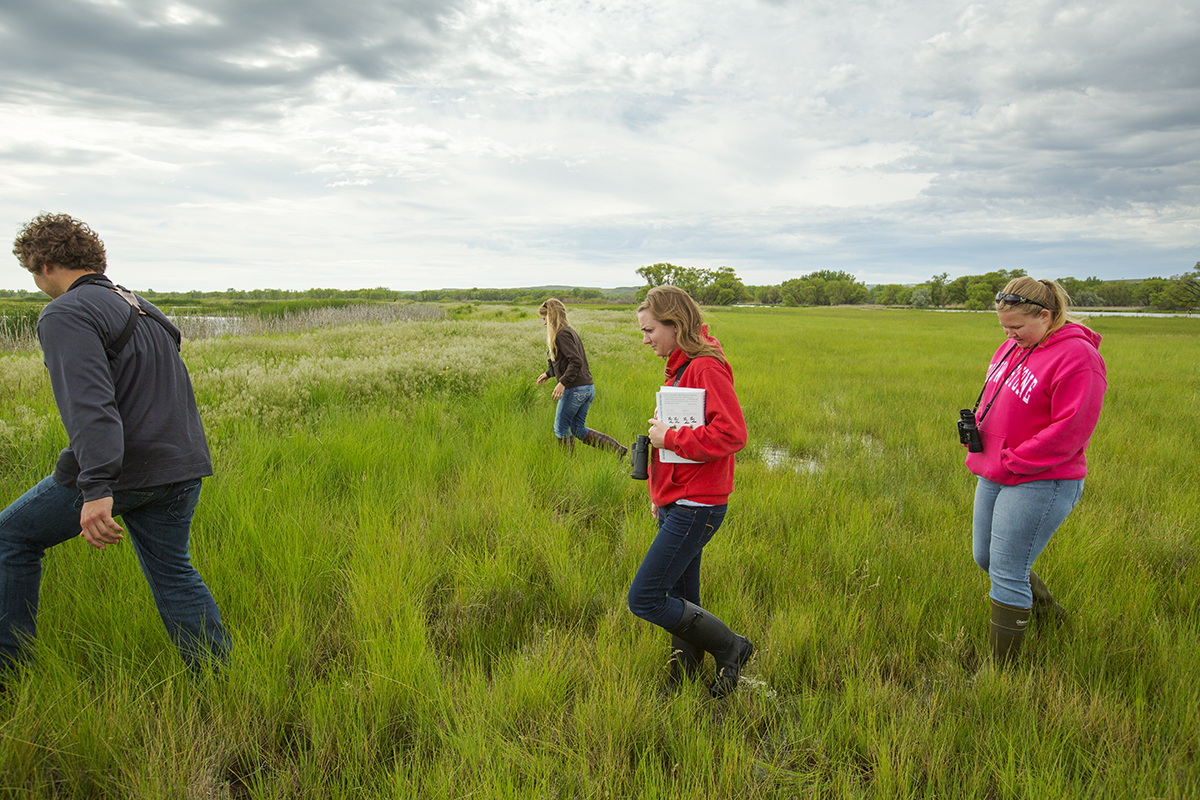
Students who participate in biology field research and experiential learning at the University of Nebraska-Lincoln's Cedar Point Biological Station will benefit for years to come from two gifts provided by Nebraska alumnus Dr. Mark D. Baxa and his wife, Deb, of Charlotte, North Carolina.
The Baxas made a charitable gift of $500,000 to the University of Nebraska Foundation to create a permanently endowed fund that will enable the university to award annual scholarships and fellowships to students enrolled in course studies at Cedar Point. Recipients will be selected based on their work ethic and character and will be known as Baxa Character Scholars.
The Baxas also designated a $70,000 gift to construct a new cabin at the biological station to provide additional lodging for students who stay for their studies and research. The cabin will be named the Baxa House.
The Baxa Scholarship will more than double the number of students the university is able to help – from about 17 students a year who receive assistance now to more than 34 moving forward, said Johannes "Jean" Knops, professor and director of Cedar Point.
"These gifts from Mark and Deb Baxa are a great and lasting help to our students and support the long-term viability of Cedar Point as a research station," Knops said. "The value of research experience for our students cannot be overstated. As a result, we have a strong need for this financial aid to help make the Cedar Point experience feasible for students."
Attending Nebraska and having his own study experience at Cedar Point as an undergraduate made a lasting impression on Mark Baxa.
"Nebraska started me on my journey to become a doctor," he said. "That included a very special and important time at Cedar Point that gave me the opportunity to see how other life forms function and understand the intricacies of all life forms. I will never forget my experiences there and the special people I met, including John Janovy, who continues his service to the university as professor emeritus."
Cedar Point is a field research facility and experiential classroom in western Nebraska near Ogallala and Lake McConaughy. It is part of Nebraska's School of Biological Sciences, with 900 acres of prairie and cedar-filled canyons, housing, dining facility, library, classroom space and research labs. Each summer, the station provides eight to 10 biology courses and supports a broad range of student research groups.
Mark Baxa, who has terminal cancer, has this advice for students and others: "What truly matters is setting goals, doing your very best and helping others. Live life to the fullest, and don't take anything or anyone for granted.
"My hope is that students at Cedar Point seek opportunities to give back and help others."
Joseph Francisco, dean of Nebraska's College of Arts and Sciences, said: "We are so grateful to Mark and Deb for their tremendous generosity in supporting Cedar Point Biological Station. The impact of their gift on our students and faculty will be immeasurable and far reaching."
Mark Baxa is a Columbus native who graduated from the University of Nebraska-Lincoln in 1981 and the University of Nebraska Medical Center with a Doctor of Medicine in 1986. He completed residency in emergency and trauma medicine at Carolinas Medical Center in Charlotte.
Baxa served as a flight surgeon for the U.S. Air Force. He was stationed in Washington, D.C., and during the Gulf War served as officer-in-charge of a surgical medevac team in Saudi Arabia. He went on to take part in 19 missions based from Germany and places in the Middle East.
After his military service, he began working in cosmetic surgery with a focus in hair restoration. He is well-known for his reconstructive surgery skills and is the medical director of Professional Image and Laser Care in Charlotte.
The gift from the Baxas also provides support for Our Students, Our Future, the University of Nebraska's current initiative seeking support for students.
Nebraska Today